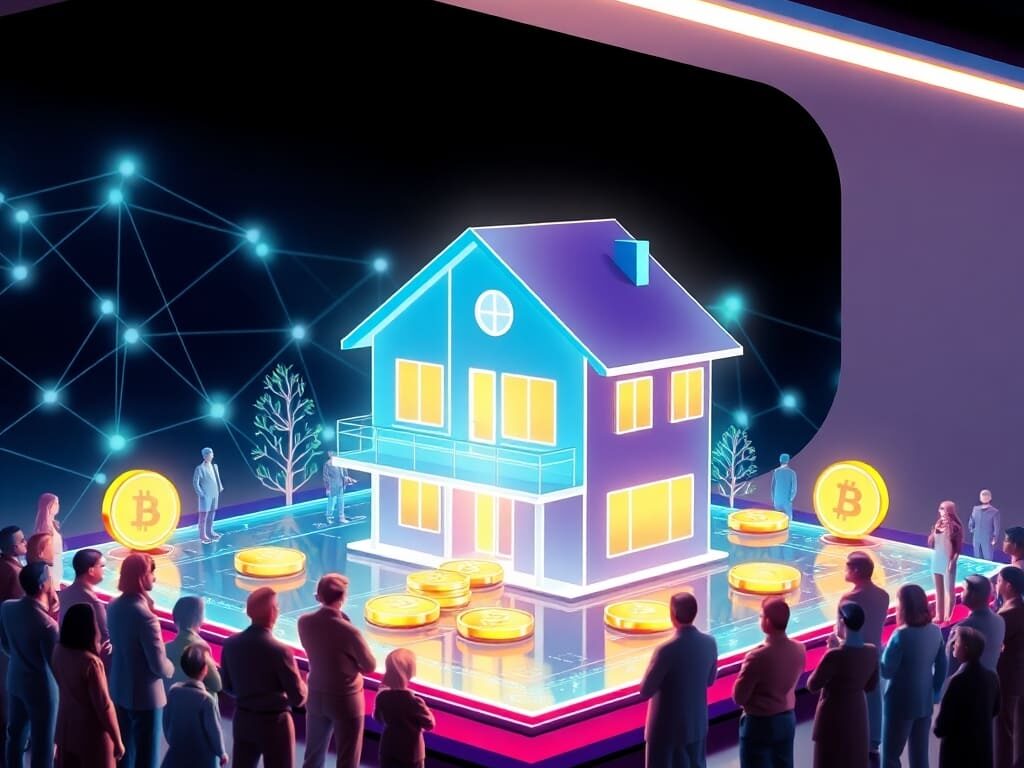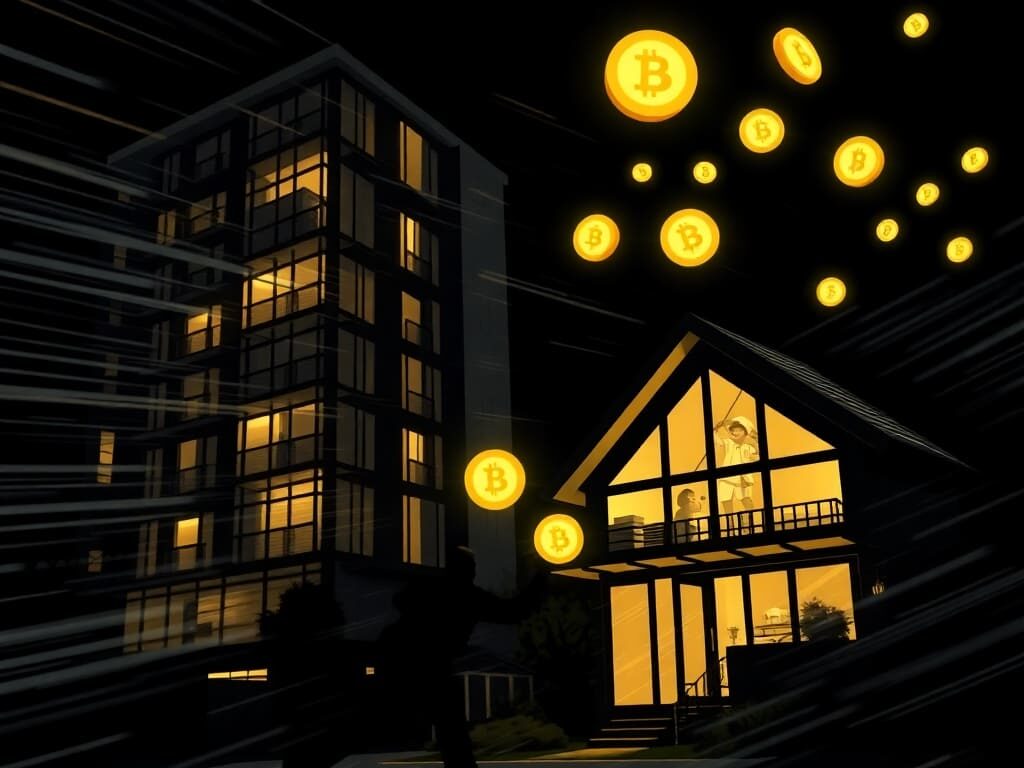Real estate, valued at over $326 trillion globally, is the largest asset class in the world. However, traditional real estate markets are often characterized by high barriers to entry, lack of liquidity, and complex transaction processes. Blockchain technology and tokenization are emerging as transformative solutions, offering new models of ownership and investment that could reshape the industry.
Tokenization unlocks real estate’s potential by making investments accessible, liquid, and borderless for a new generation of global investors.
Anthony Pompliano, Blockchain Entrepreneur
Introduction to Tokenization
Tokenization in real estate refers to converting ownership rights of a property into digital tokens recorded on a blockchain. Each token represents a fractional share of the asset, enabling investors to own and trade small portions of high-value properties.

The concept of fractional ownership was first tested in Manhattan in 2018, when a luxury property was tokenized to allow multiple investors to buy shares. Although the project ultimately failed due to regulatory challenges and a lack of understanding, it set the stage for a broader conversation about tokenization’s potential to democratize real estate investment and lower entry barriers.
How Fractional Ownership Works
Fractional ownership through tokenization allows investors to buy and sell small portions of properties, making real estate investment accessible to individuals with limited capital.
Tokenized rental properties, for instance, enable investors to contribute as little as $50 to own shares of real estate assets. These properties are often held by a Limited Liability Company (LLC), with governance provided by a Decentralized Autonomous Organization (DAO). Investors participate in collective decision-making about property management, such as maintenance and rental pricing, creating a transparent and democratic model of ownership.
Innovative Models in Tokenized Real Estate

- Tokenized Rental Properties
Platforms like Lofty AI have pioneered tokenized rental properties, allowing small investors to enter the market. By purchasing tokens, investors gain partial ownership and a share of the property’s income or appreciation. This model opens up opportunities previously reserved for high-net-worth individuals and institutions. - Unlocking Home Equity
Companies like Vesta Equity offer homeowners the ability to tokenize their home equity and sell shares to investors. This provides homeowners with immediate access to cash without incurring debt. Investors, in turn, profit from future appreciation as they hold tokens representing the property’s equity.
Secondary Markets and Liquidity
A major advantage of tokenized real estate is the introduction of liquidity through secondary markets. Traditional real estate transactions are often slow and illiquid, but blockchain-based platforms enable investors to buy and sell tokens on digital marketplaces. This flexibility makes real estate investment more dynamic and accessible.
Challenges and Regulatory Landscape
Despite its potential, tokenization faces significant hurdles, particularly in regulatory compliance. In the U.S., the Securities and Exchange Commission (SEC) has closely scrutinized tokenized platforms, questioning whether tokens should be classified as securities.
Blockchain transforms real estate by lowering barriers, enabling fractional ownership, and creating a more inclusive, efficient investment ecosystem.
Cathy Hackl, Futurist and Tech Innovator
The lack of global regulatory consistency further complicates the landscape, making it challenging for platforms to operate across multiple jurisdictions. Addressing these issues will be critical for the long-term success of tokenized real estate.
Impact on Communities and the Market
The rise of tokenized real estate also raises concerns about its broader implications.
- Housing Affordability
Critics worry that tokenization could exacerbate affordability challenges by driving up property prices, particularly in lower-income neighborhoods. Investors’ global access to local properties may create competition that disadvantages local buyers. - Tenant Rights
With ownership distributed among multiple token holders, tenant rights and property management could become more complex. Ensuring responsible governance and fair treatment of tenants will be essential as the model evolves.
The Future of Tokenization in Real Estate
The potential for tokenization is immense, with an estimated $278 trillion in real estate assets globally. Over the next decade, we can expect significant advancements:

- Wider Accessibility: As regulatory frameworks mature, tokenized real estate platforms could become more widely available, enabling broader participation in the global property market.
- Comprehensive Tokenization: Beyond ownership, all aspects of real estate transactions—including title deeds, mortgages, and rental agreements—could be tokenized, creating a fully digital ecosystem.
- Global Investment Opportunities: Tokenization breaks down geographical barriers, allowing investors to participate in real estate markets worldwide, from urban developments in Europe to emerging opportunities in Asia.
Takeaways
- Fractional ownership through tokenization was first tested in Manhattan in 2018, demonstrating the potential to revolutionize real estate investment.
- Tokenized rental properties allow individuals to invest with as little as $50, democratizing access to a traditionally exclusive market.
- Platforms like Lofty AI and Vesta Equity enable collective ownership and innovative ways to unlock home equity, respectively.
- Secondary markets introduce liquidity, a feature rarely available in traditional real estate.
- Regulatory compliance remains a significant challenge, with scrutiny from agencies like the SEC.
- The long-term impact of tokenization on housing affordability and tenant rights is still debated.
- The tokenization of real estate assets, valued at over $278 trillion globally, signals a profound shift in property ownership and investment.
Breaking Down the Barrier
Tokenization represents a revolutionary step forward for the global real estate market. By lowering barriers to entry, enhancing liquidity, and enabling seamless cross-border transactions, it has the potential to create a more inclusive and efficient property ecosystem.
While challenges like regulatory compliance and community impact must be addressed, the opportunities for innovation and growth are immense. As blockchain technology matures, tokenization could redefine property ownership and investment, unlocking the vast potential of the $326 trillion real estate market for investors and homeowners worldwide.













